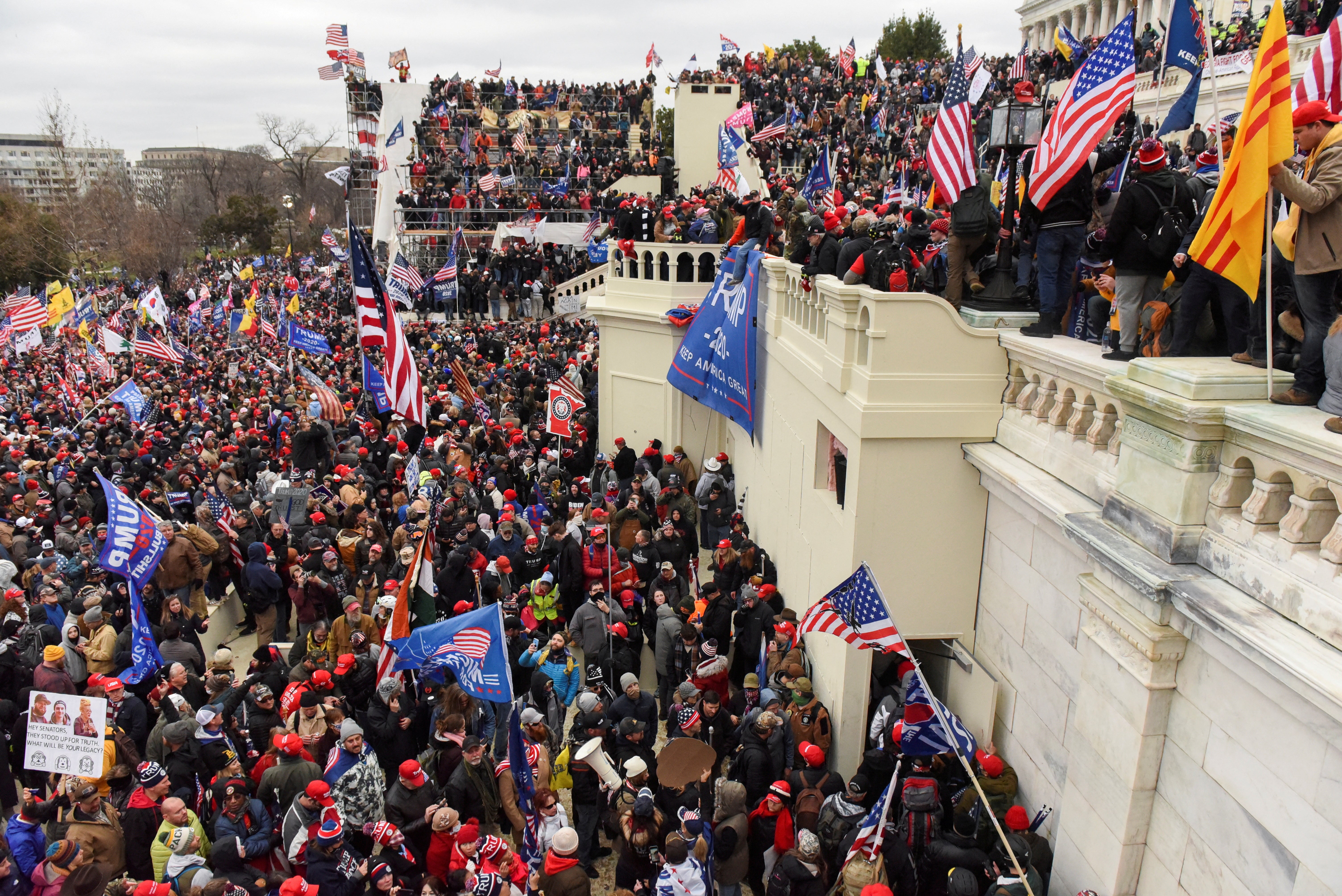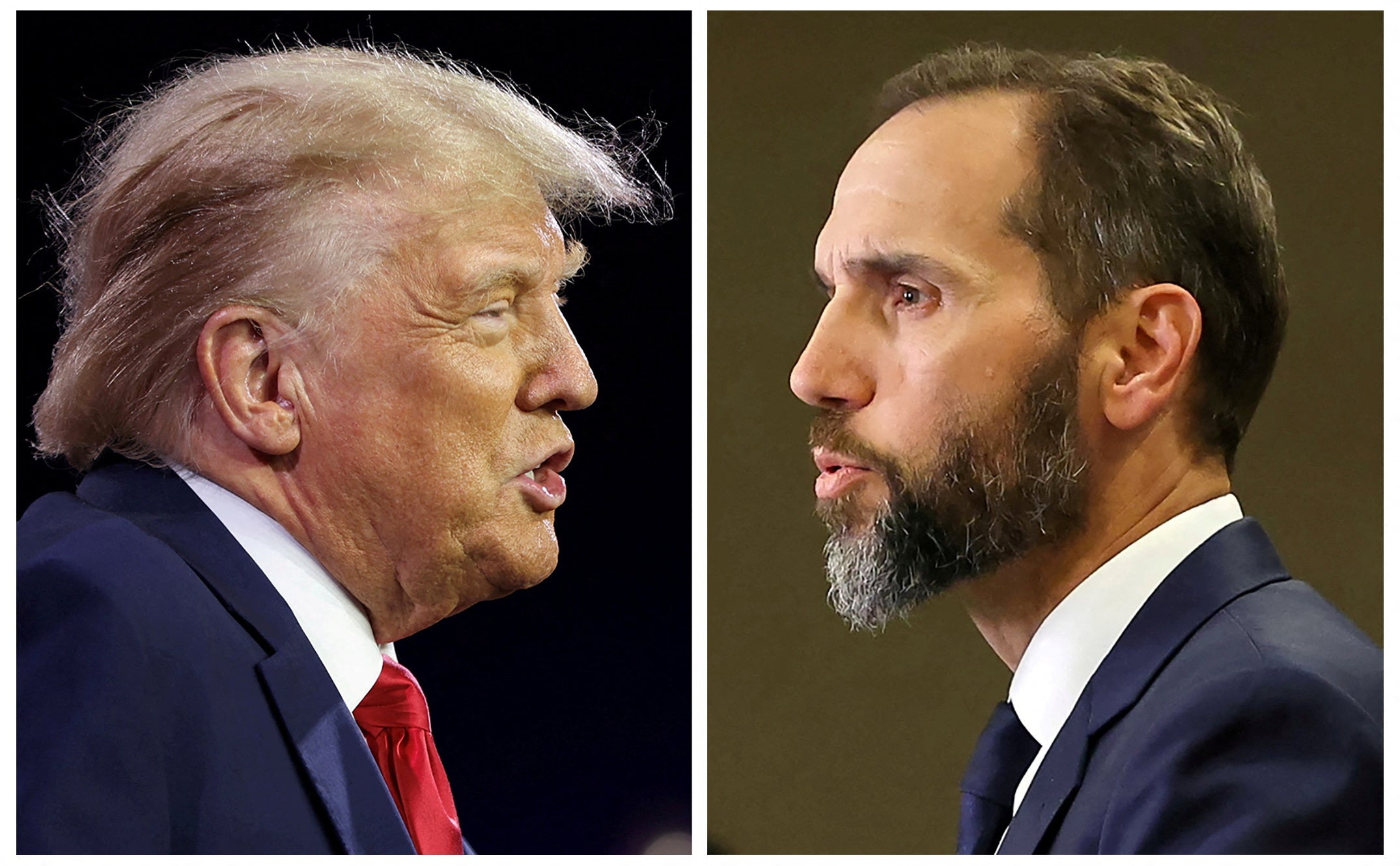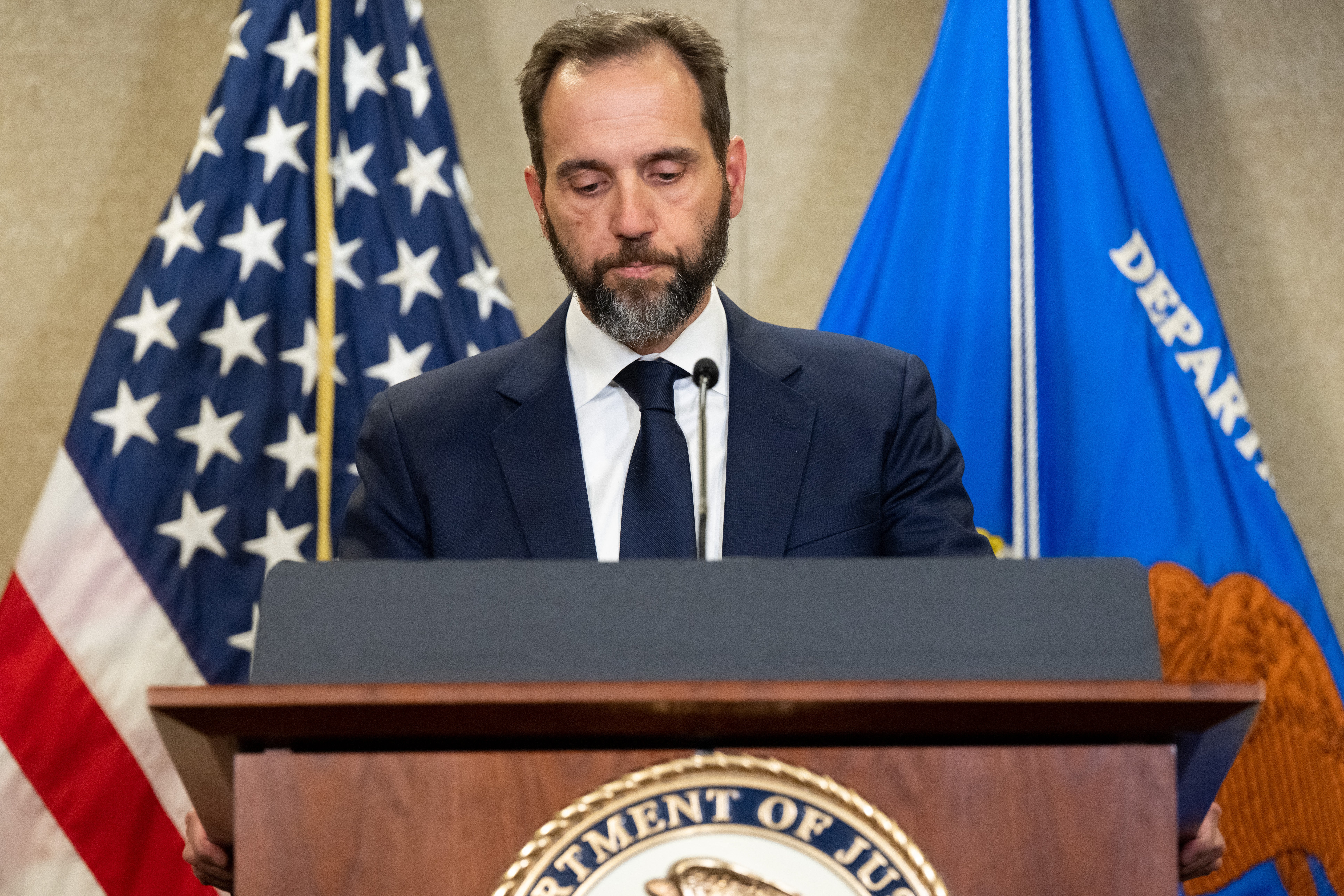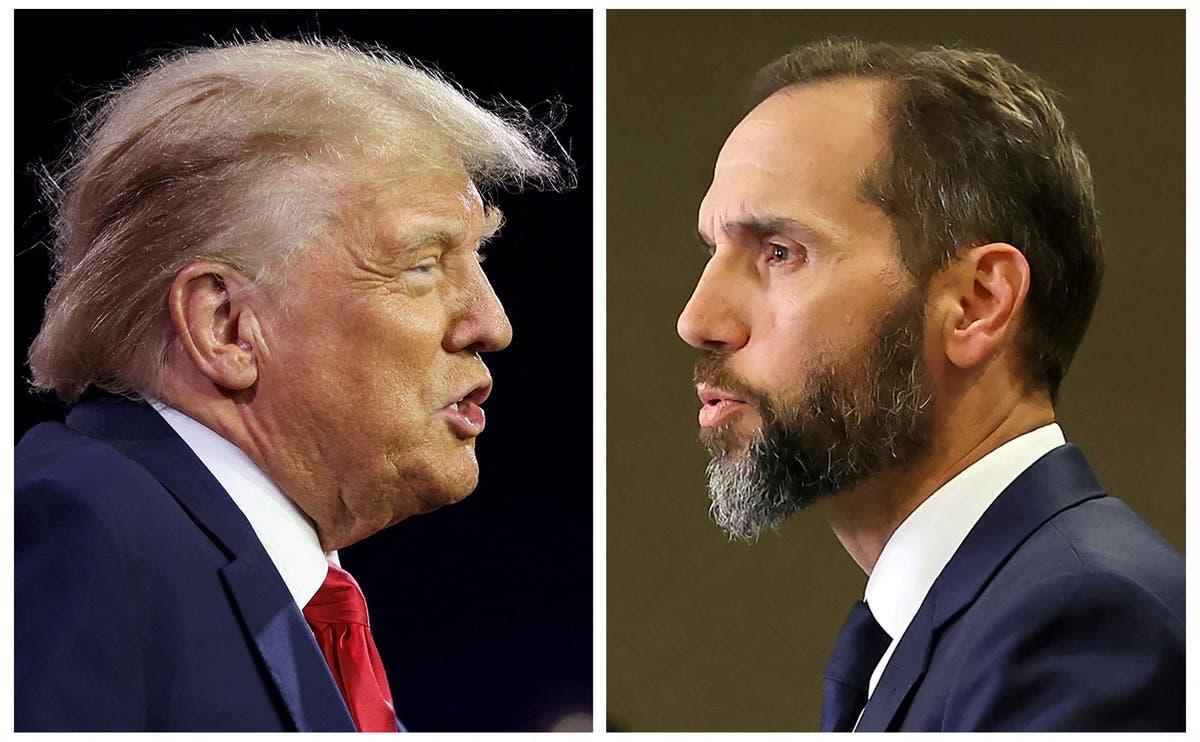President-elect Donald Trump is accused of conspiring with his allies to pressure state officials, election workers and his own vice president to overturn the results of an election he lost, and then failing to stop a mob of his supporters from storming the halls of Congress to do it by force.
But the sprawling criminal case against Trump’s efforts to subvert the 2020 presidential election — thousands of pages of court filings and a body of evidence tracing his “increasingly desperate efforts” to cling to power — could soon come to a crashing halt.
Three days after Trump defeated Kamala Harris to retake the White House, special counsel Jack Smith asked a federal court in Washington, D.C., to throw out a calendar of pretrial deadlines while his office spends the next few weeks trying to figure out what to do next.
Smith will tell the court his plans for the case by December 2 after taking “time to assess this unprecedented circumstance and determine the appropriate course going forward consistent with Department of Justice policy,” his office wrote on November 8.
The apparent collapse of a monumental criminal case against the former president — on charges connected to events that started more than four years ago — has left his critics grappling with what went terribly wrong.
There’s Attorney General Merrick Garland, who refused to lead any prosecutions of the alleged crimes that Smith’s office has painstakingly detailed and is now poised to leave President Joe Biden’s administration having failed to hold Trump accountable. There’s Mitch McConnell, who led Senate Republicans in refusing to convict Trump after his impeachment for the events of January 6. And there’s Trump’s reshaped federal judiciary that paved the way for favorable court rulings.
Trump has called Smith a “scoundrel” and “deranged,” pledged to fire him “within two seconds” of his first day in office, and said he should be “thrown out of the country.”
He has pledged to pardon the hundreds of people charged in connection with the Capitol attack, and he will almost certainly direct his attorney general to dissolve the two federal criminal cases against him, creating yet another “crisis for democracy,” says Noah Bookbinder, a former federal prosecutor in the Justice Department’s public integrity section who now serves as director of Citizens for Responsibility and Ethics in Washington, a nonpartisan watchdog group.

The Justice Department has relied on internal policy against prosecuting sitting presidents. But it is unclear how the special counsel’s office could continue prosecuting a case that started years before Trump was set to enter office, involving alleged crimes at the end of his first term.
“Jack Smith certainly could take a more aggressive position and say that these cases can move forward, and that might be the best course for justice and accountability and democracy and showing that nobody’s above the law,” Bookbinder tells The Independent.
But Smith could take a “less disruptive” route and bring the case to a close himself, Bookbinder says. “Those are hard decisions that he needs to make.”
Within the hour that Smith’s office filed its notice to the court, House Republicans who have baselessly accused the special counsel of leading a politically motivated case against Trump have signaled their intent to launch an investigation of their own.
Trump’s legal ally Mike Davis told Smith to “lawyer up.”
Ending the prosecution of Trump for his attempts to overturn the 2020 election, weeks before he enters office after winning the 2024 election, is “the opposite of how to oppose autocracy,” according to Norm Eisen, a senior fellow at the Brookings Governance.

Smith’s case isn’t likely to be put on ice, either, unless Judge Tanya Chutkan takes the extraordinary measure of appointing another lawyer to argue against dismissing the case “if there’s a sense that the prosecutors are making a decision for reasons that may not be improper,” according to Bookbinder. Otherwise, reopening the case in four years would blow past the statute of limitations.
If the years-in-the-making case comes to an end, Smith could file a report with his findings, hoping to at least make a public record of what he uncovered.
Months into his first term, Trump dismissed FBI director James Comey, who was leading an investigation into links between Trump’s associates and Russian contacts. After his dismissal, acting FBI director Andrew McCabe opened an investigation into Trump for obstruction of justice.
Robert Mueller was then appointed as special counsel to continue the probes, resulting in a sweeping final report that resulted in 34 indictments, including charges against Trump campaign officials. Trump, however, was never charged.
Smith could file a similar report before Trump is sworn in, but it’s unclear whether his office can get that done before the inauguration. A report would almost certainly never be publicly released by Trump’s administration.
“I don’t know whether Donald Trump as president, or a Trump attorney general, would leave them in place to write and release a report like that,” Bookbinder says. “But that’s certainly another really important step that Jack Smith’s office could take to at least ensure that the public knows what they found, even if there is no direct accountability.”

So far, the largest account of the government’s findings is in a 165-page document that details the state-by-state efforts by Trump, his unindicted co-conspirators and allies to pressure state officials, election workers and others to validate his scheme to reverse the loss, and then organize fraudulent election certificates that falsely stated he won.
The filing followed Smith’s renewed attempts to try the case after the Supreme Court’s “immunity” ruling, which arrived after months of delays and courtroom debate.
Nearly one year ago, Smith’s team asked the Supreme Court to step in and settle the question once and for all, in the hope of keeping the case moving swiftly to prevent the exact scenario they are now facing.
The justices denied that request and didn’t agree to take up the case until late February. Rather than affirm lower-court decisions that rejected the immunity claim, justices didn’t agree to hear the arguments for themselves until the end of April. A decision didn’t arrive until July.
By the time the case returned to Judge Chutkan, with the special counsel scrambling to navigate a ruling that shielded Trump from prosecution for crimes committed in office, Election Day was only a few months away.
The Supreme Court’s decision to slow walk their answer to one of the most important questions of presidential power in American history ensured that voters would never see a verdict in a trial to determine if he unlawfully conspired to overturn an election before they cast their ballots in the next one.
“If these investigations get shut down,” Bookbinder says, “they’re largely gone.”

